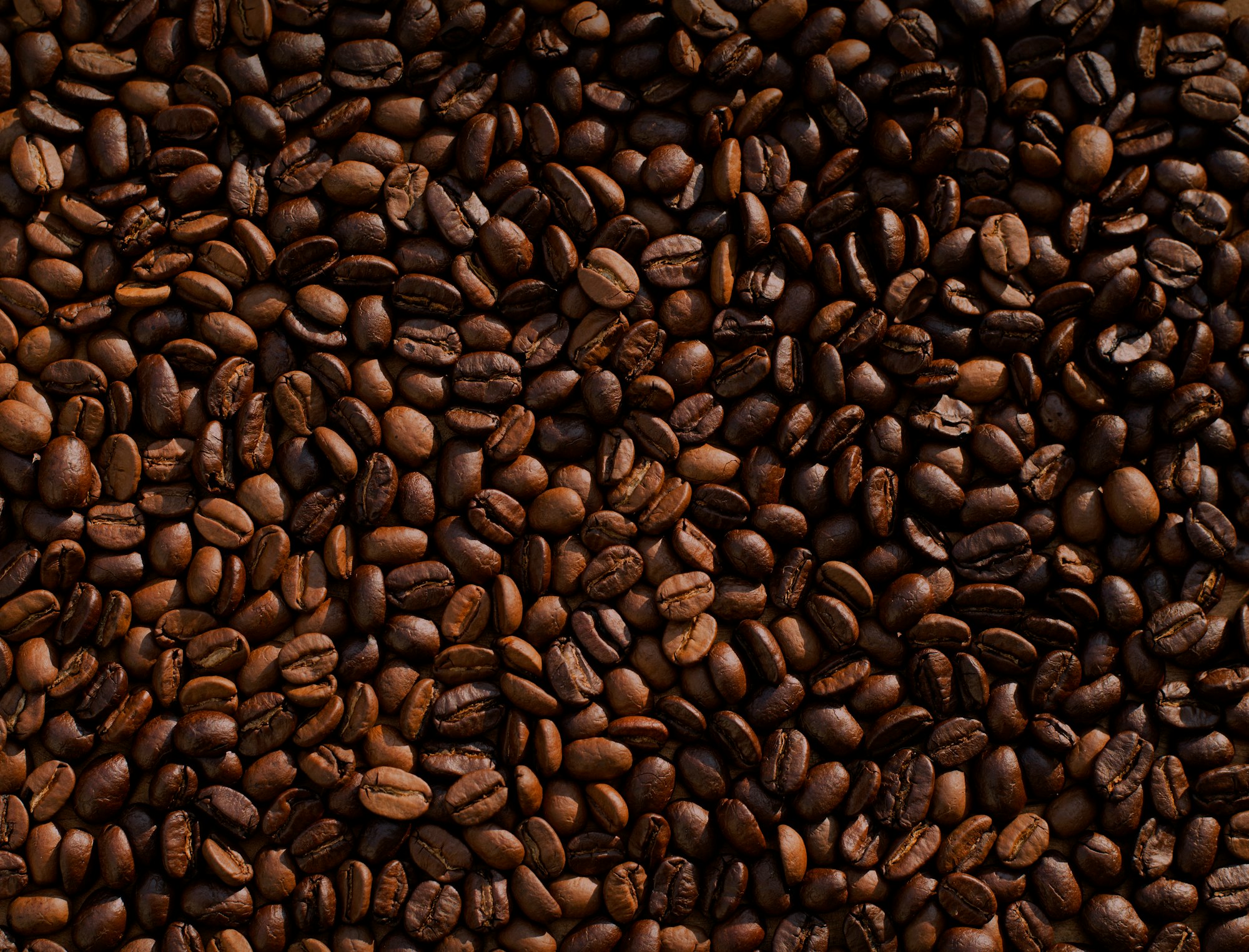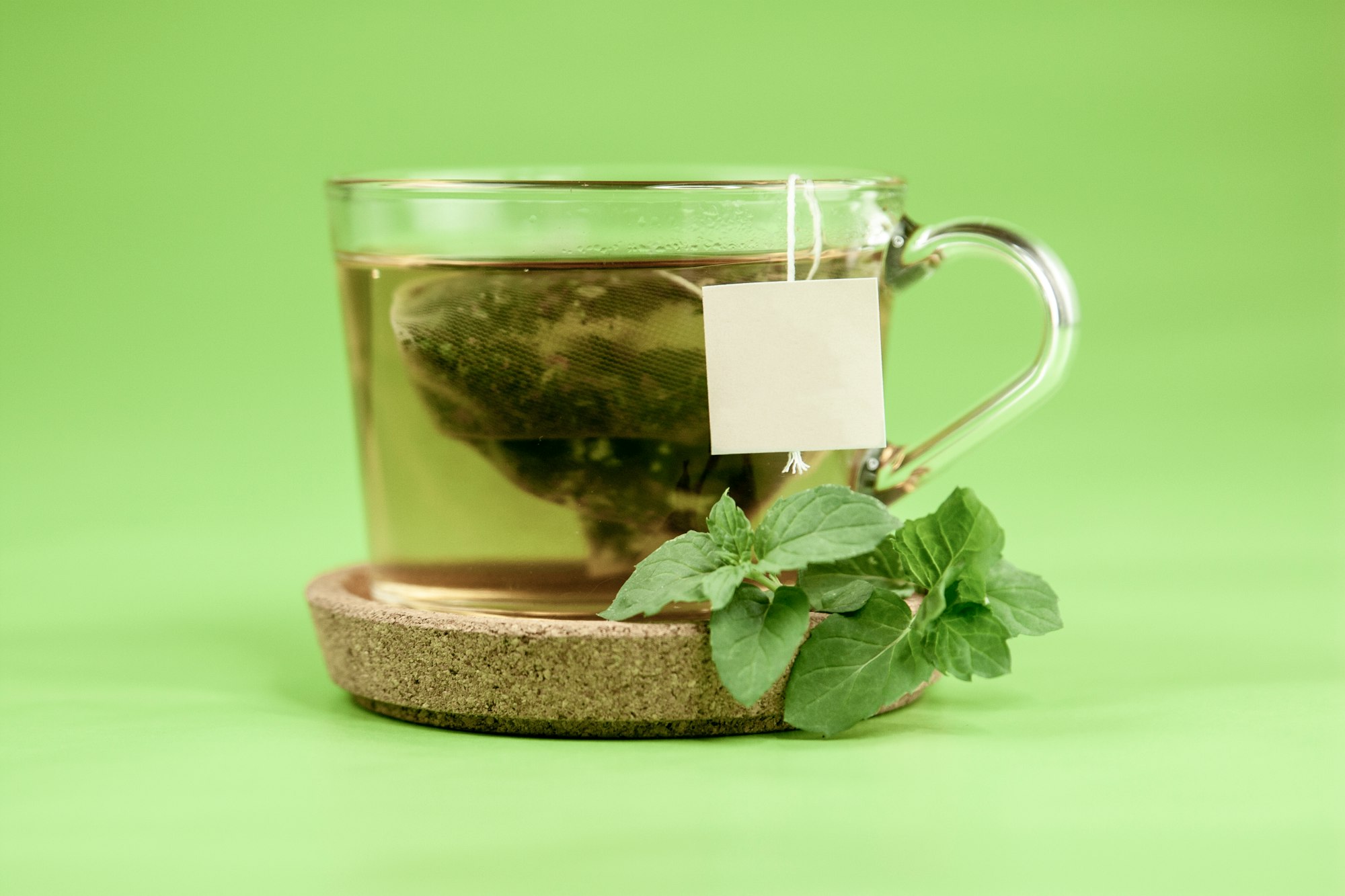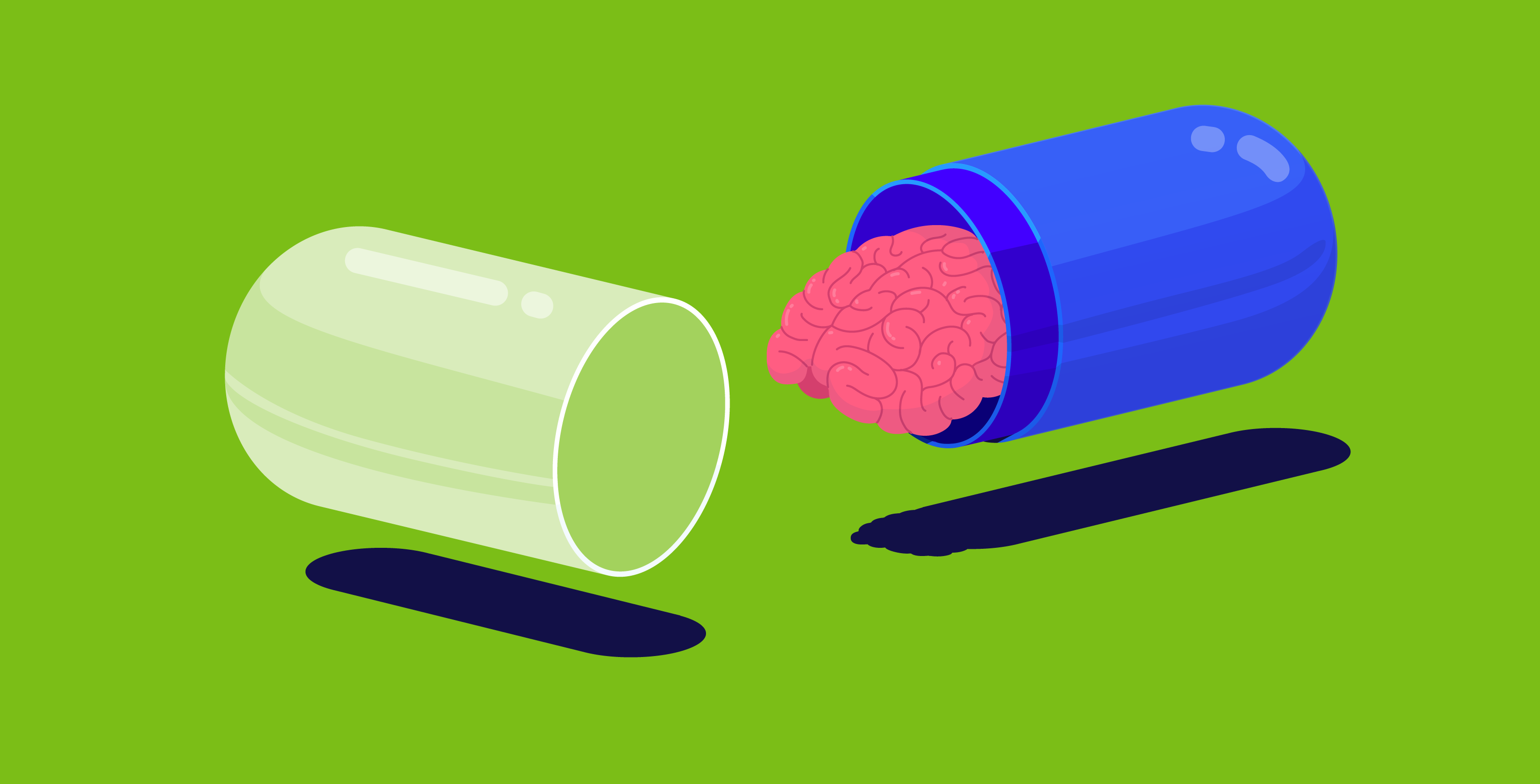Table of contents
- What is biohacking?
- What are nootropics?
- Different types of nootropic
- Limitless or limited? An overview of nootropic evidence
- Looking beyond nootropics
- Final thoughts
Nootropics are substances claimed to boost cognitive functions, including memory, alertness and concentration. But is there any truth to these claims, and is productivity a pill away? Keep reading to find out...
What is biohacking?
Biohacking is a broad and amorphous term encompassing a wide range of activities. Depending on who you ask, it can refer to those seeking to enhance their performance through intermittent fasting and cold showers or individuals who insert technology into their bodies. Ultimately, it is a catch-all term for optimising your health through self-experimentation and supplementation.
The movement began in Silicon Valley and continues to be endorsed by high profile tech entrepreneurs such as Twitters Jack Dorsey. Other prominent biohackers include the motivational speaker Tony Robinson and the author Dave Asprey, who founded his own nootropic supplement company.
What are nootropics?

Many in the biohacking community promote the use of "nootropics", colloquially referred to as "smart drugs" or "cognitive enhancers". The term Nootropic is derived from the ancient Greek words νόος (nóos), meaning "mind" and τροπή (tropḗ) meaning "a turning ". These are simply substances reputed to boost brain performance, including memory, concentration and mental speed.
You might have encountered the idea of nootropics in popular culture, most notably in the film and TV season Limitless. The plot revolves around a man who takes a fictional smart drug called NZT-48, allowing him to access his full mental capacity. In the film, the drug enhances memory, improves learning and leads to better problem-solving.
Believe it or not, you have probably taken a nootropic in your life. I am currently sipping on one of the most popular nootropics out there, 1,3,7-Trimethylpurine-2,6-dione, although you might know it as caffeine. Caffeine is a proven nootropic that can enhance focus and encourage wakefulness.
☝TIP☝ Did You Know? The famous writer Honoré de Balzac was an avid caffeine user, supposedly drinking as many as 50 cups a day and even chewing raw beans when working! He attributed his prodigious output and creative powers to caffeine and went on to produce over 100 novels. His excessive caffeine use might have contributed to his early death by heart failure at 51.
Different types of nootropic
Before we continue, let's take a closer look at some common nootropics, including what they are, whether there is any evidence behind them and whether they cause any side effects.
Synthetic nootropics

Nootropics are broadly split into two groups- synthetic and natural. In short, synthetic drugs include prescription medications such as Methylphenidate (Ritalin) and dextroamphetamine (Adderall), both used to treat the behavioural disorder ADHD as well as narcolepsy.
Students and entrepreneurs alike have started taking the drug "off-label" to enhance productivity in recent years. These drugs are designed to enhance focus and decrease impulsivity by producing dopamine and norepinephrine. Although these can increase focus and motivation, the drugs have a long list of side effects, including:
- anxiety and depression
- hair loss
- headaches
- insomnia
- weight loss
- high blood pressure
- hallucinations
☝IMPORTANT☝ In the UK, Adderal and Ritalin are class B substances, meaning it is illegal to purchase or use these medications off-label without a prescription. Furthermore, not only are these substances highly addictive, but they can also lead to cardiovascular health issues and even sudden death if abused.
Besides Adderall and Ritalin, Modafinil has risen to prominence in recent years, especially among students at top-performing universities. The drug was initially designed to treat narcolepsy but is reputed to enhance mental performance and focus. Whilst there is some evidence for its nootropic effects, there is a dearth of research on the long-term effects of taking the drug.
Firstly, a study in the Neurophyscopharmocology Journal concluded that Modafinil is effective at improving decision making, learning and planning, but had little effect on working memory or creativity. These effects have been observed in at least one other study also, which found that Modafinil significantly improved self-reported levels of focus, energy and alertness.
Other results have been less promising; a meta-analysis and systematic review published in 2019 found that Modafinil had limited potential as a cognitive enhancer in those who are not sleep-deprived.
In a study published last year, researchers compared the nootropic effects of Modafinil with Ritalin and caffeine. In short, both Ritalin and caffeine had noticeable effects on cognition, either increasing alertness, attention or declarative memory, whilst Modafinil had no significant impact.
Common side effects of Modafinil include headaches, nausea and anxiety. What's more, one study raised concerns that Modafinil might reduce neuroplasticity long-term and adversely affect cognitive ability, especially in juveniles and adolescents.
Natural Nootropic Supplements
Parallel to this, there has been a rise in over-the-counter nootropic supplements that use natural ingredients. Alpha Brain is one of the most notable brands and enjoys endorsement from the podcaster and comedian Joe Rogan. Other popular nootropic supplements include Mind Lab Pro and Bulk Powders nootropic mix. The industry was estimated at $10 billion in 2020 and is set to grow in the coming years.
These products combine a blend of nootropic ingredients, known as a "stack", and promise to improve memory, concentration and mood. They often contain amino acids, B vitamins and natural herbs or plants used in traditional medicine.
These products are accompanied by bold taglines promising to help you excel at sports, study and work. To take a random example: "Imagine you at your best. All the time". It is a tempting prospect, but what is in these supplements and is there evidence to support their use?
Below is a list of ingredients common in nootropic supplements. Let's break down the available research and examine each one.
Ginkgo Biloba

Ginkgo Biloba (GB) is a species of tree native to China. It is one of the most ancient seed plants and an example of a "living fossil", meaning it closely resembles its forebears in the fossil record. The plant has been used in traditional Chinese medicine for centuries and is said to combat age-related mental decline and improve memory.
In a 2013 meta-analysis and systematic review of 8 studies on the use of GB for dementia, researchers concluded that GB increased the cognitive functions of those with dementia. However, they found insufficient evidence to support its use for ADHD, autism, depression or anxiety.
Last year, a research team conducted an up-to-date meta-analysis and review of the current body of evidence. They concluded that 240mg for 24 weeks GB may improve the cognitive functions of those with mild dementia, though more rigorous research is needed.
These findings are contradicted by a paper published on the Cochrane library, the gold standard for high-quality systematic reviews and meta-analyses. They concluded that many of the studies on GB are small, poorly designed and potentially subject to biases.
As a result, they concluded that the evidence for its benefits in dementia patients is unreliable and inconsistent. On the basis of its findings, The National Center for Complementary and Integrative Health (NCCIH) maintains that ginkgo neither helps prevent dementia or cognitive decline.
There is little research into how GB might affect healthy individuals', other than a single double-blind, placebo-controlled trial which found that 120mg of GB a day had no nootropic effect on healthy, older adults.
Be aware that ginkgo may interact with conventional medications, especially blood thinners. Other side effects include headache, stomach upset and skin rashes.
Due to an increased risk of bleeding, anyone who is pregnant, at risk of bleeding, awaiting surgery, or vulnerable should not use the supplement without their doctor's approval. Lastly, both raw and roasted ginkgo seeds are extremely toxic and should not be eaten.
Lions Mane

Lion's mane (Hericium Erinaceus) mushrooms are native to Asia, Europe and North America. The mushroom gets its name from its shaggy, white spine and is a valued ingredient in both Chinese and Russian traditional medicine. Proponents claim the mushroom can improve memory, slow cognitive decline and even reduce depression.
In one animal study, a mixture of Gingko Biloba and Lions Mane enhanced visual and spatial memory in mice suffering from Alzheimer's. Moreover, at least one study has shown that lions mane can increase memory and hippocampus activity in healthy, wild mice models also. These studies are often cited as evidence that lions mane can improve working memory, but whilst compelling, animal studies are low on the hierarchy of evidence and cannot be extrapolated to humans.
More promisingly, a Japanese randomised controlled trial found that lions mane significantly improved cognitive function in a group of 50-80-year-olds with minor cognitive impairment. What's more, four weeks after the experiment ended, their scores began to drop significantly. The researchers noted no adverse side-effects when they tested the patients.
To date, there have been no studies on young, healthy volunteers to see how lions mane might impact cognitive performance in those who are not cognitively impaired. Like many other ingredients on this list, the verdict is out on lion's manes' nootropic properties pending large scale, high-quality human studies.
L-Theanine

L-Theanine is an amino acid found in black and green tea. It is also taken as a supplement, typically with caffeine. In one study, researchers found that an L-Theanine supplement relaxed the mind without causing drowsiness in young, healthy participants.
In another study, researchers compared the effects of L-Theanine when taken alone and with coffee. In isolation, L-Theanine increased self-reported calmness and reduced tension at a 200mg dose. When combined with coffee, it increased alertness, although less so than coffee alone. The study concluded that both L-Theanine and caffeine have clear beneficial effects on memory. The authors also suggested that L-Theanine can moderate coffee-related jitters.
Lastly, another study found that 97mg of L-Theanine combined with 40mg of caffeine significantly increased performance during task-switching and increased self-reported alertness.
Panax Ginseng
Also known as Asian Ginseng, this perennial plant reputedly enhances memory and problem-solving. It is thought to be the second most common psychoactive substance behind caffeine in the US. Additionally, some have proposed it is neuroprotective, slowing cognitive decline and helping combat Alzheimer's disease.
In a benchmark study, researchers compared the cognitive enhancing ability of Panax Ginseng (PG) to Modafinil, the pharmaceutical drug discussed earlier. PG demonstrated equally strong cognitive-enhancing effects, albeit on different mental faculties; whereas Modafinil improved spatial function, PG most notably enhanced reaction time. Researchers cautioned that a lack of rigorous studies into PG limited their meta-study.
In another meta-study and systematic analysis, researchers concluded that whilst PG had a small effect on cognitive performance, there is a lack of convincing evidence for its nootropic effects. The researchers urged other researchers to conduct large scale, randomised controlled trials.
Lastly, a small systematic review concluded that the substance had a very high safety profile, with the most common side effects being insomnia, acid reflux and hot-flushes. The researchers note that more extensive and rigorous clinical trials are needed despite these promising findings.
Rhodiola Rosea
Rhodiola Rosea (RR), also known as "golden root", is a plant found in arctic regions across Asia, Eastern Europe and North America. The plant has been used in traditional medicine to treat fatigue, depression, anxiety and altitude sickness. It is also a common ingredient in nootropic stacks and has been hailed as an "adaptogen", meaning a herb or flower that can help the body adjust to physical, chemical or biological stress.
In 2012, a research team systematically reviewed the scientific literature exploring the relationship between RR and fatigue. In short, out of eleven studies, seven showed it to be effective in treating fatigue, whilst four showed no positive association. The researchers defined the results as contradictory and judged all the studies as high risk for bias. Ultimately, we can't make any conclusive statements about its effects on fatigue at the moment.
In preliminary studies, RR has shown potential in managing depression, stress and anxiety. For example, in a randomised placebo-controlled trial published in the Phytomedicine Journal, the authors conclude that the plant improved symptoms in those with mild-moderate depression, albeit to a lesser extent than conventional antidepressants. The researchers acknowledge that better quality trials are needed to confirm these findings.
Limitless or limited? An overview of nootropic evidence
Ultimately, the research for individual nootropic ingredients is mixed. Whilst some show promise, there is a lack of quality studies on many of these ingredients and almost no research into them when combined in nootropic stacks. Until we have more rigorous, large-scale studies on the effects of these ingredients, we can't make any definitive statements, especially not some of the claims nootropics companies currently do make.
Additionally, the long-term safety profile for some of the ingredients found in nootropic supplements is unclear and requires further research. There is also a lack of information regarding the best doses for natural nootropic substances.
As for synthetic nootropics, these have a clear and proven effect on cognitive functions. However, it is illegal to use these substances without a prescription. Beyond legality, these substances can lead to various health issues and even death, especially when they are abused or taken without medical supervision.
Looking beyond nootropics
There is emerging evidence that adherence to the Mediterranean diet may help protect against Alzheimer's and improve cognitive function.
To take one example, a literature review published in 2021 found that the diet was positively associated with increased memory and reduced cognitive decline in both healthy and mentally impaired older populations.
Likewise, a 6-year study looking at 800 healthy adults found that increased adherence to the Mediterranean diet is associated with a reduced cognitive decline, albeit to a small extent.
Alongside the Mediterranean diet, a wide body of evidence demonstrates that regular exercise can boost mood and increase overall mental functioning. Firstly, a study at the University of British Columbia found that frequent aerobic exercise may increase the size of the hippocampus, an area of the brain involved in verbal memory and learning.
In another small study, light and moderate exercise were shown to increase reaction times in older adults. Last but not least, a three-year prospective study found that those who performed more moderate-vigorous aerobic exercise had lower levels of cognitive decline than sedentary participants.
Final Thoughts
To summarise, there is promising research for some individual ingredients, namely L-theanine and lion's mane, but many questions remain about dose, safety and efficacy. As it stands, the evidence is currently too scarce to make definitive health claims about natural nootropic supplements.
If you want to improve cognitive functioning and slow mental decline, the evidence for both exercise and the Mediterranean diet is equally as compelling as any research in favour of nootropics, especially when combined. Unlike nootropics, these are associated with a reduction in the risk of heart disease, stroke, type-2 diabetes and all-cause mortality.
For this reason, I would recommend a healthy diet, sufficient sleep, moderate caffeine intake and frequent aerobic exercise in favour of any cognitive enhancing supplements. It may not be as effortless as taking a pill, but it is the safest and best-evidenced way to cultivate better cognitive functioning.
☝️DISCLAIMER☝This article is for informational purposes only. It is not intended to constitute or be a substitute for professional medical advice, diagnosis, or treatment.


















